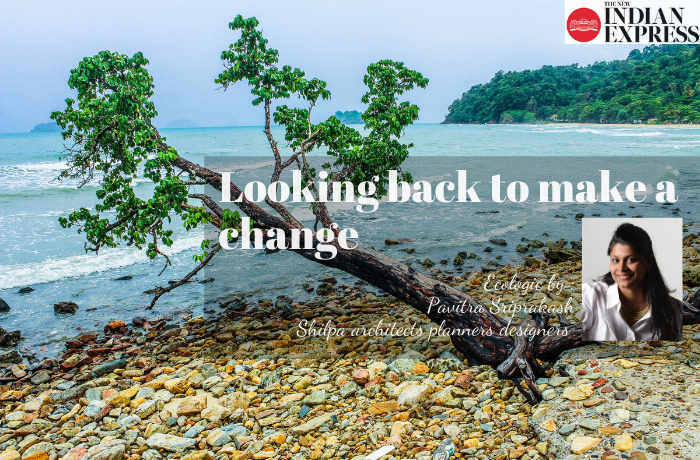02-Jan-2020 : Pavitra Sriprakash, Director and Chief Designer at Shilpa Architects Planners Designers writes a weekly column on Sustainability for The New Indian Express titled “ECOLOGIC”. This week’s article is about looking back on 2019.
Full article below: (Also available at The New Indian Express Website)
Looking back to make a change
As we introspect on how we have lived in the past and think about making new resolutions for living better in the upcoming years, let us also pause and think about the issue of climate change. For many of us, this still feels like something so far removed from daily living that it does not warrant much deep thinking — it is easier for us to go about our lives thinking this is too large a problem for us as individuals and someone, somewhere in some lab or institute is coming up with great solutions to this big problem of our time. As a look back, I wanted to touch upon news headlines from 2019 that are all linked to that one large issue that connects us all — our planet and the fact that our climate is changing.
Whether it is floods or wildfires — these cause immense damage to the environment and urban areas alike. Kerala, Maharashtra and Karnataka are among the top states that were flood affected in 2019 — total death tolls are at 200 and about one million have been displaced due to floods in 2019. Floods cause a lot of damage and are very expensive to fix. People lose their homes, their belongings and sometimes their cars during floods — all of which is very hard to insure against. On the other side of the world, the Amazon was ablaze with uncontrollable fires — a record 80,000 that was an 80 per cent jump over the previous years. While it seems a necessity to clear the forests to make agricultural land for people to raise livestock and have meat — it is coming at a great price to the planet — Each of us benefit from the health of the Amazon.
The Amazon plays a huge role in pulling planet-warming greenhouse gases out of the atmosphere by taking in CO2 and releasing oxygen. Simply put, without it, climate change speeds up With the Air Quality Index (AQI) of the NCR hitting almost 500, there was a scare of hazy skies and a surge in the AQI for Tamil Nadu going up to 300. With worsened air quality, people are prone to allergies and asthma attacks. Ground-level ozone, a major component of smog, can also cause coughing, chest tightness or pain, decrease lung function and worsen asthma and other chronic lung diseases.
The prices of onions soared in recent months in Chennai with news of imports from Ethiopia coming in to meet demands. While there are several reasons for higher food prices, climate change is a major factor. Extreme weather affects livestock and crops, and droughts can have impacts on the stability and price of food. In our case, we increased our carbon footprint even further by having to import a food item, causing further greenhouse gases to be emitted. As global temperatures continue to rise, climate change will affect our wallets, our health, our safety, and our lives. And while there are ways to adapt on a personal level, some of these changes are going to become more severe and unavoidable over time. The best way to protect ourselves in this decade of 2020 is to support policies and measures that cut carbon emissions and enhance climate resilience.



